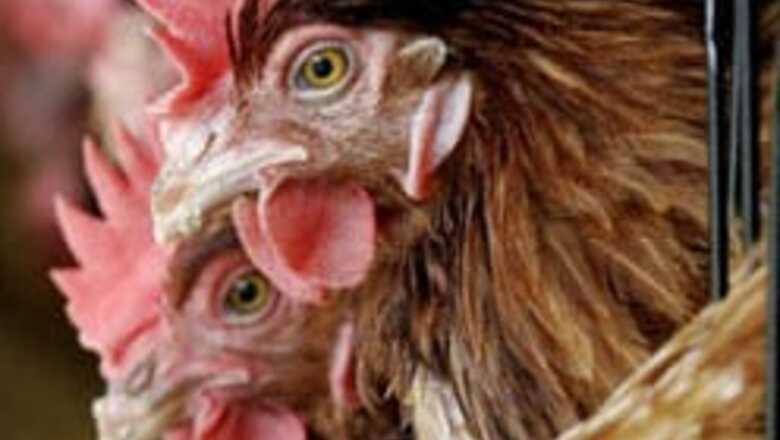
views
New Delhi: Asian countries hit by bird flu made plans on Friday to join forces to fight the H5N1 virus, which killed a teenager in Thailand and was found in chickens in Laos this week.
It was the first human case in Thailand this year and the first outbreak in Laos since 2004. The cases were reminders that the virus, which has killed 134 people out of 232 known to be infected, will not soon be eradicated.
In the "Delhi Declaration" - agreed after a two-day meeting sponsored by the World Health Organization - ministers and senior officials from 11 Asian countries, including China, Indonesia, India and Thailand, agreed to share details about their checks into outbreaks of H5N1 avian influenza.
They also pledged to collaborate to develop and produce drugs, vaccines and diagnostic tests and promote research.
Thai officials, shaken by Monday's death of the 17-year-old boy, said they would push for the use of the drug Tamiflu in suspected cases rather than wait for lab results.
"If we have unusual deaths of chickens, even in the backyard, and a patient gets fever, even if not severe as in pneumonia, doctors have to start Tamiflu without any results of the laboratory," Director General of Thailand's Department of Disease Control, Thawat Suntrajarn said at the meeting.
Tamiflu, made by Roche AG under license from Gilead Sciences, does not cure bird flu but seems to help patients survive if taken early enough.
Doctors initially suspected the teenager in the northern province of Pichit was suffering from dengue hemorrhagic fever and did not give him Tamiflu, even though he had been disposing of dead chickens, Thawat said. Thai Agriculture Minister Sudarat Keyuraphan demanded quicker investigations of suspicious bird deaths, and more honesty from villagers about possible outbreaks.
"We can't wait for the disease to happen. We have to go after it, to look for it in every house," she said.
PAGE_BREAK
Pichit livestock chief Pracha Assavametha said owners of infected fighting cocks did not report the outbreak.
"Villagers were reluctant to inform the authorities when their cocks were dying because they were expensive," Pracha said at a town hall meeting about the outbreak.
The H5N1 virus remains largely a bird disease, but it has spread across much of the world in the past year. Experts fear it could evolve into a form that easily infects people, in which case it would cause a pandemic that could kill millions.
Health experts consider impoverished countries, like Laos and Cambodia, weak links in the global fight against the virus because basic health care barely exists outside urban areas and it is difficult to monitor birds for the virus.
The UN Food and Agricultural Organization said H5N1 had been found in Laos on a commercial farm 25 km south of the capital, Vientiane, where about 2,500 chickens died last week.
"We have not had anything like this since 2004, so now we have to find where it comes from and make sure it doesn't continue," FAO technical adviser Ricarda Mondry said.
Other countries are reporting some success. India, which reported its last outbreak of bird flu in poultry in April, said it planned to declare itself free of avian influenza around mid-August after it put in place widespread surveillance and reporting mechanisms.
India is close to developing its own vaccine against avian flu for poultry, and officials said once it proved to be commercially viable, they would share expertise with other nations. Asian nations also promised to bridge the lack of coordination between farm and health departments, which officials said was hampering the fight against the virus.



















Comments
0 comment